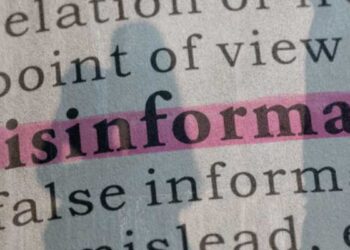Select Language:
It’s official: the latest sensation on Spotify, The Velvet Sundown, is entirely created by generative AI, just as many had suspected.
Who or What Are The Velvet Sundown?
If you haven’t heard of The Velvet Sundown yet, they’re a fresh band that’s quickly made waves on Spotify, amassing an impressive one million monthly listeners within just a few months.
This is an incredible achievement for a group whose music can be described as generic psych-rock with folk-rock influences. It’s enjoyable, but not groundbreaking. Still, The Velvet Sundown captured the attention of enough Spotify users to thrust them into the limelight—and with that attention came scrutiny about the fact that the band is entirely AI-generated.
We Knew The Velvet Sundown Was AI All Along
An update on The Velvet Sundown’s Spotify Artist page has confirmed what many, including myself, suspected all along:
The Velvet Sundown is a synthetic music project guided by human creative direction, and composed, voiced, and visualized with the support of artificial intelligence.
Despite being AI-generated, the band is portrayed as an artistic endeavor “designed to challenge perceptions of authorship, identity, and the future of music in the age of AI.”
The signs of artificial intelligence were hard to miss. The band’s images exhibit a distinct generative AI quality, despite some editing. While minor tweaks can mask certain AI flaws, anyone who’s worked with AI-generated human images recognizes the trademark traits: uniform textures, a yellowish tint, and that unsettling, overly-similar appearance.
Oh, and the band’s members look slightly different in each photo—just as the lead singer’s voice varies from track to track.
Additionally, this band seemingly emerged overnight and managed to release two full studio-quality albums—an unusual feat in today’s music landscape, especially considering the quality attributed to The Velvet Sundown. With another album set to drop at the end of this week, they’ll have produced three full albums in 2025 alone.
The Velvet Sundown (and AI Music) Aren’t Going Anywhere
It seems that despite the revelation of The Velvet Sundown’s AI origins, the “band” is set to continue releasing new music.
The apparent popularity of this AI band raises several intriguing questions. For one, The Velvet Sundown’s music is so mainstream that it’s hard to think of a reason why listeners would actively dislike it. While you might not seek their songs out, their classic 1970s-style psych/folk rock sound is easy to enjoy.
Moreover, their lyrics are refreshingly simple yet catchy and memorable. Take their most popular track, “Dust on the Wind”:
[Verse 1] Dust on the wind/ Boots on the ground/ Smoke in the sky/ No peace found/ Rivers run red/ The drums roll slow/ Tell me brother, where do we go?
[Chorus] Raise your hand/ Don’t look away/ Sing out loud/ Make them pay/ March for peace/ Not for pride/ Let that flag turn with the tide
The lyrics are vague, hinting at national pride and military themes without being offensive. Coupled with the music, it results in a comforting familiarity against a backdrop of ambiguity—which makes it incredibly listenable.
There’s another side to consider too. Some speculate that The Velvet Sundown might be benefiting from Spotify’s listening bots, another issue plaguing the platform. It’s not hard to picture the creators of an entirely AI band using these bots to inflate streaming numbers, paving the way for placement in profitable Spotify playlists.
AI music has gradually infiltrated more Spotify playlists as the platform promotes certain AI artists. For instance, another AI musician, Aventhis, appeared in my Discover Weekly once.
The track was generic, and I skipped it, only later realizing it was AI-generated. Thus, whether we like it or not, Spotify is forcefully introducing AI music to its users with no option to opt-out.
The rise of The Velvet Sundown signals a pivotal shift in how we discover music. When AI-generated bands can accumulate millions of streams and feature on curated playlists, what does that portend for emerging human artists trying to break into the scene?
It also brings forth questions about transparency: should platforms like Spotify clearly label AI-generated content? And as AI music becomes increasingly similar to the real deal, will listeners even care who’s behind the tunes they enjoy? One thing is clear: this is more than just a passing trend; it marks the dawn of a new era in music.






